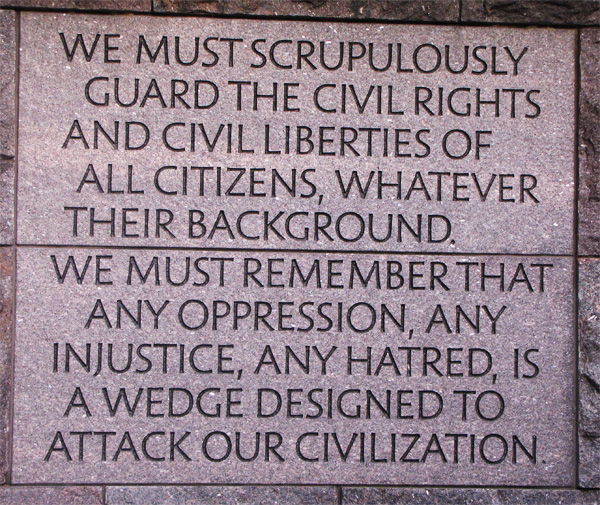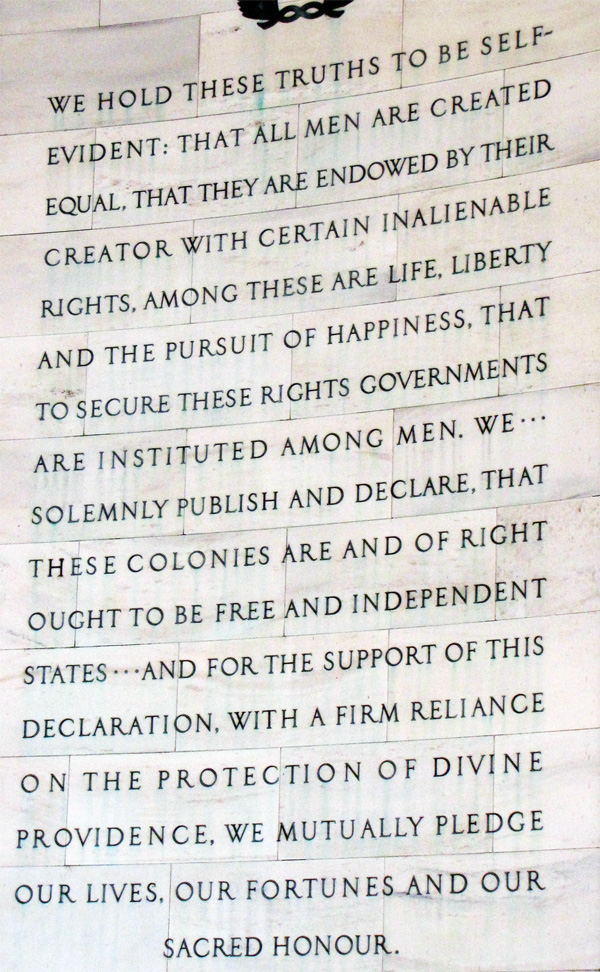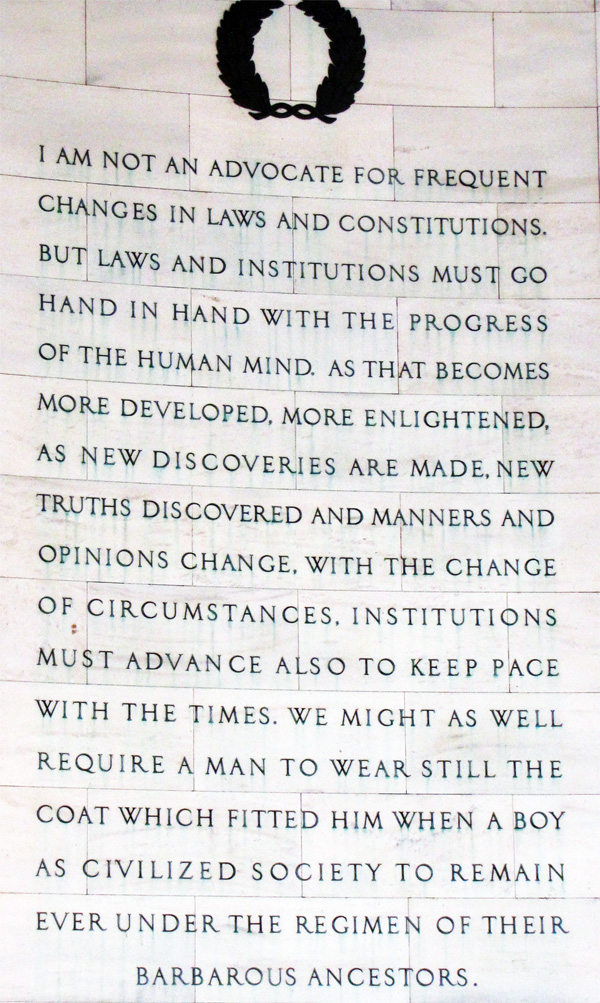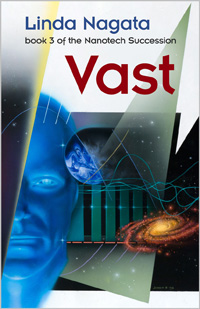Last week I was in Laramie, Wyoming for the 2012 Launchpad Astronomy Workshop. I heard about the workshop from Vonda N. McIntyre and Deborah Ross, who both attended in earlier years and were very enthusiastic about their experiences. It’s described as a semester of astronomy crammed into a week. Sounds like fun, right? I applied in the spring almost as soon as the application period opened, though I didn’t really expect to get in.
Launchpad is a workshop designed by Mike Brotherton and Jim Verley to educate writers, film makers, game developers, etc. in real astronomical science and space technology, in the hope that what they learn will be reflected in their work, and will in turn help to educate the general public. Naturally, the bigger a writer’s audience, the bigger the outreach effort. I assumed other writers, with larger readerships, would be ahead of me in the selection process, but to my surprise I was offered a slot, and I eagerly accepted.
It turned out to be a great week of fascinating lectures by Mike Brotherton, Geoffrey Landis, and Christian Ready, enhanced by group dinners, and two field trips. This year’s workshop was funded by the National Science Foundation. Funding for next year is uncertain, but hopefully it will come through. If it does, and if you’re a writer/film maker/game designer with an interest in astronomy (and if you don’t mind living in a college dorm for a week, at elevation of 7000-feet!) then you should apply.
Here are a few photos:
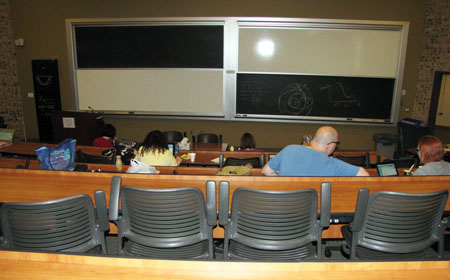
Here’s the lecture hall where we spent many hours (and where we were very well fed by the Launchpad staff — thank you, Nicole!)
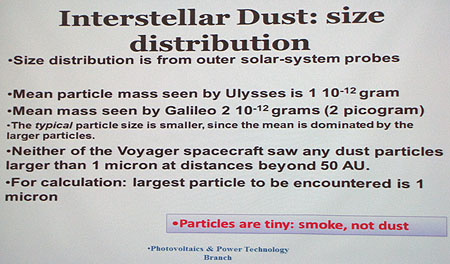
It’s been a long time since I was in college. During the lectures I learned of a new way of taking notes–photographing the power point slides!

The University of Wyoming has a beautiful campus, with lots of native plantings that were thriving in midsummer.

There is even a menacing T-rex on campus!

A view of Laramie’s old-style downtown. Laramie itself is a terrific little town, with a vital downtown, full of good restaurants.
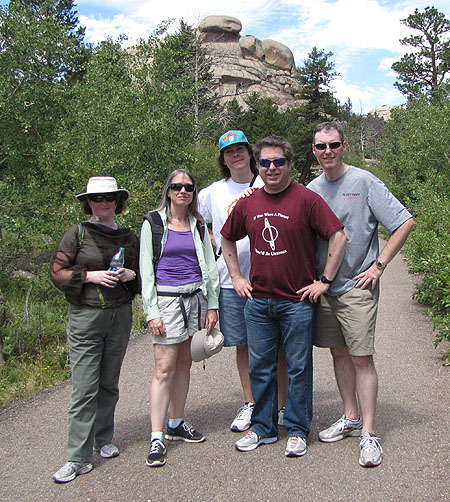
We went on two field trips. One was an evening expedition to WIRO, the Wyoming Infrared Observatory, and the other was to Vedauwoo, a forest service area with amazing rock formations. From left to right in the photo above are Jodi Lynn-Nye, myself, Matthew Rotundo (in back), our fearless leader Mike Brotherton, and guest lecturer, Christian Ready.
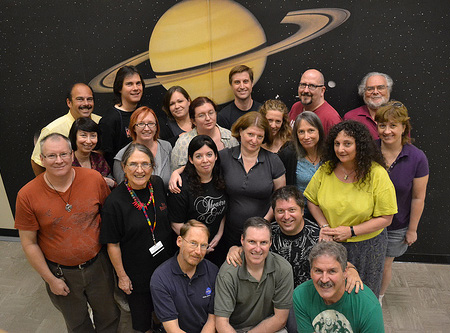
And here we are all together for our group photo.
Row 1 (kneeling): Geoffrey Landis, Christian Ready, Mike Brotherton, Jim Verley.
Row 2: Doug Farren, Mary Turzillo, Nova Ren Suma, Farah Mendlesohn, Ellen Datlow
Row 3: Jodi Lynn Nye, Christi Yant, Tiffany Trent, Robin Wasserman, myself, Sandra McDonald.
Row 4: Robin Christian Peters, Matthew Rotundo, Merrie Haskell, Matthew Kressel, Jake Kerr, Michael Kurland
Photo courtesy of Ellen Datlow
If you’re going to DragonCon you can sign up for a mini-version of Launchpad.
And don’t forget to check out Mike Brotherton’s science fiction novels: Spider Star and Star Dragon.








